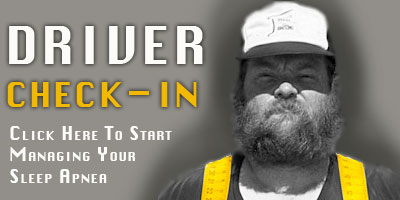About Sleep Apnea
One of the most essential habits in order to maintain a healthy lifestyle is having a good night’s sleep. Sleeping well is just as important as exercising and eating all your nutrients. People with undiagnosed or untreated sleep apnea leaves them with high health risks for a variety of disorders and diseases. These health risks include hypertension, heart disease, stroke, anxiety, erectile dysfunction, loss of memory, diabetes, and obesity. All of these potential dangers are easily avoidable with the diagnosis and treatment of sleep apnea.
There are different types of sleep apnea, the most common being “Obstructive Sleep Apnea” (OSA). OSA most commonly occurs when the airway to the lungs collapse in people during sleep due to their relaxation of muscles. This limits your ability to breath for an elongated amount of time (~10 seconds). This is called an apnea. If additionally your airflow decreases by 30-50% during the apnea, you are considered to have a hypopnea. The Apnea and Hypopnea combined are known as an AHI event. The more AHI events you have, the less amount of oxygen is reaching your bloodstream, causing you to be oxygen deprived. When you reach this state, your body starts pumping your heart faster, causing you to jump out of your deep sleep, or maybe even jolt awake. These events are known as micro-arousal. Each time an untreated person reaches deep sleep, an event may occur, preventing them from ever obtaining a good night’s deep, refreshing sleep.
Sleep apnea is known to affect almost 12% of the adult male population. Women are less likely to have the disorder, however it is possible. In truck drivers specifically, 28-30% of truck drivers have sleep apnea. In parallel, the trucking industry carries the highest rate of obesity, which is a risk-factor that leads to OSA. Additionally, the majority of these truck drivers are not diagnosed with sleep apnea, yielding nearly 28-30% of drivers to be operating vehicles with inadequate sleep, experiencing compromised health, and elevating risk for accidents, liability, and medical expenses. Symptoms or markers of sleep apnea include: neck circumference greater than 17”, a body mass index greater than 30. snoring, drowsiness during the daytime, hypertension, diabetes, history of stroke, heart disease, or frequent nighttime urination. Up to 90% of people who have sleep apnea are unaware of the symptoms and thus don’t even know they have this sleep-breathing disorder. Those who have some or all of the symptoms listed above are encouraged to get tested for sleep apnea in order to prevent any further detrimental health consequences.
On a positive note, there are very effective treatment solutions for those diagnosed with sleep apnea. CPAP machines (continuous positive airway pressure) treats sleep apnea by providing continuous air pressure through a mask in order to prevent the airway from collapsing and an apnea event from occurring. Doctors can prescribe one set pressure for the air to be constantly flowing at using a CPAP, however taking into account that many people have various depths of sleep, an APAP might be a superior option. An auto-setting positive airway pressure device adjusts accordingly throughout the night to the pressure that would give the most comfort to the patient. This increases compliance and provides a more comfortable and peaceful sleep for the patient. Other treatments are available for treatment such as surgery and dental devices, however a positive airway pressure device is an easy, convenient and tolerable option for all patients to be able to have a deep and restful sleep.
Treatment for sleep apnea is important in any situation, however for drivers specifically, untreated sleep apnea can result in 7 times more likely chance to get into a serious accident. This is because the disturbances caused by sleep apnea throughout the night results in a loss of concentration and alertness for the driver while on the road. The driver will also be at risk of a variety of health issues, causing a greater liability for the fleet and fleet owners. If these health issues surface, the cost of medical care will increase immensely as well. Using our Turn-Key program, you we will not only ensure that your drivers are diagnosed accurately, we will commit to monitoring their treatment usage to be certain that their health or lack of sleep is no longer an issue due to sleep apnea. We will provide unsurpassable support and reliability to your entire fleet to make this testing and treatment process smooth.
Currently, it is advised by the DOT/FMCSA’s Medical Advisory Board to verify all Medical Examiners providing a physical exam to renew a driver’s CDL to check the all risk factors for sleep apnea. Although this has not been declared by the board to be a requirement, there is talk of an implementation of this recommendation soon. AllTrans Fleet is providing Fleet owners a cost efficient opportunity to get ahead of the curve and complete testing and treatment for all of their drivers before the official mandate is set. All in all, signing up for the AllTrans Fleet program will be beneficial to both you and your drivers for a variety of reasons: (1) Financially, you will save costs on medical expenses, accident fees, employee turnover, and insurance rates.(2) It is an inevitable reality that you will be mandated to do complete it regardless of if you join the program now or later…why wait? (3) You reduce the risk of danger and accidents on the road for your drivers and all motor vehicle operators in your region. (4) Our method of home sleep testing is affordable and fast, preventing your drivers from having to spend a night and double the cost in a sleep lab. (5) Our management team will be with you the whole way to maintain your drivers’ compliance (6) Become an icon in the Trucking Industry as a steward of public safety, caring for the health of your drivers and all drivers in your region.

